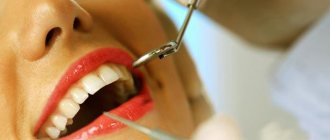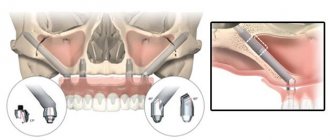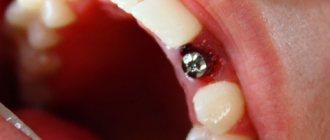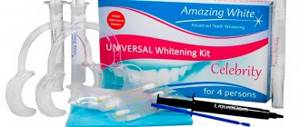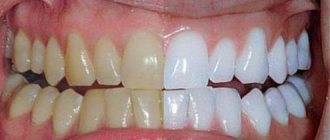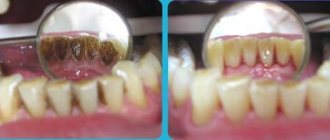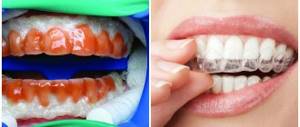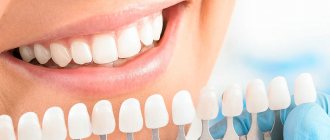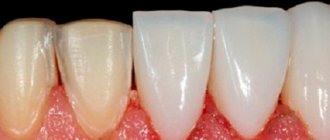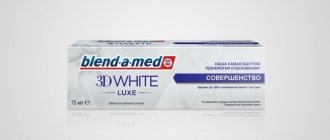Dentistry has come a long way in researching technologies to make your smile more attractive. Improving the appearance of teeth has long been considered a serious and important cosmetic procedure. There is a lot of information about what options and what you can choose from in this area. The reasons for tooth discoloration can be completely different. The foods we choose, medications taken during pregnancy or childhood, injuries, and medical interventions all play a role here. To understand whether teeth whitening is the right choice for your situation, you need to understand the origins. And this can only be done through a thorough analysis of the clinical picture at an appointment with an experienced dentist.
Teeth whitening methods
There are two methods of teeth whitening: professional and non-professional. The first is used both in dental clinics and at home. Professional whitening includes photo whitening, endo whitening, chemical, laser, cosmetic whitening, as well as the use of caps. Each method has its own advantages and disadvantages, indications and contraindications.
Non-professional whitening products include plates that are used with trays. Dentists do not recommend using them yourself: improper use will lead to complications and increased tooth sensitivity.
The most popular and effective are professional methods - chemical, laser and photo bleaching. Professional home whitening methods are also often used, but a course of procedures is required to obtain a lasting result.
The most effective non-professional teeth whitening products are preparations based on hydrogen peroxide or carbamide peroxide. Preparations without these substances only clean plaque and polish teeth.
Even when using the same product, different patients will have different results. The best effect is achieved by whitening teeth with natural yellowness. Gray enamel is more difficult to bleach. An experienced doctor will be able to predict how effective the procedure will be in a particular case.
Indications and contraindications for laser whitening
Since the teeth whitening procedure is carried out for aesthetic purposes, the only indication for its implementation is the patient’s dissatisfaction with his smile. As a rule, enamel lightening is carried out on teeth in the smile zone or on individual teeth, the color of which is different from the rest. It is important to identify the cause of the darkening. If this process occurs after taking medications or due to fluorosis (darkening caused by fluoride deposits), then laser whitening will be ineffective in these cases.
It is also worth paying attention to contraindications, namely:
- Patient's age . Laser whitening is performed for people over 18 years of age due to the fact that before this age the process of formation of tooth enamel occurs, which may be too thin.
- Pregnancy and breastfeeding . During this period, it is also worth refraining from whitening; the female body experiences heavy stress and releases a large amount of microelements, which also causes the tooth enamel to become thinner.
- A large number of fillings and extended areas of teeth . Composite materials cannot be whitened, and therefore after the procedure they will immediately become noticeable against the background of lightened teeth.
Installed braces, increased sensitivity of teeth and allergies to the components of the gel will not allow laser lightening. That is why it is important not only to consult with a specialist and treat your teeth and gums, but also to be checked for allergic reactions.
Composition of whitening gels
For both professional and non-professional whitening, special gels with hydrogen or urea are used. It may also contain amorphous calcium phosphate, potassium nitrate or fluorine. These elements give teeth brightness and shine and heal damaged enamel. Some gels contain components that have a soothing effect on gums and teeth.
Why do teeth darken?
Changes in the color of enamel can be caused by both external and internal factors - the dentist’s task is to understand the reasons and choose the best way to solve the problem.
External causes of darkening of teeth:
- food - tea, coffee, cola, red wine, some fruits and vegetables can cause darkening of teeth;
- tobacco abuse - from smoking or chewing tobacco, teeth noticeably lose their brightness;
- improper or irregular brushing of teeth (they darken due to soft and hard deposits);
- some materials used in dentistry.
Internal reasons:
- age - over time, the enamel becomes thinner (erased), and darker dentin begins to show through;
- tetracycline antibiotics and some other drugs can cause darkening of the enamel, especially in childhood or the prenatal period;
- genetics - some people have naturally thicker and lighter enamel, while others have darker enamel;
- localized enamel hypoplasia (disturbances in the formation of hard dental tissues);
- excessive fluoride content in water or excessive use of fluoride-containing toothpastes and rinses;
- untreated dental diseases affecting the pulp;
- dental injuries.
Dealing with darkening of the enamel that has arisen due to internal factors is somewhat more difficult and whitening at home cannot be done - you will need the help of a specialist.
Stages of teeth whitening
- The doctor examines the patient’s oral cavity, determines the cause of the change in enamel color, and takes an x-ray. The information obtained will allow you to select a suitable bleaching system.
- Professional teeth cleaning.
- Remineralization to restore thinned enamel. Performed before and after bleaching.
- Teeth whitening. The doctor applies a whitening gel to the teeth, which is activated by light, laser, or without additional devices. The duration of the procedure depends on the chosen technique, but usually teeth are whitened in one visit.
- Before whitening at home, you should visit a doctor. The specialist will select a special gel and make individual mouth guards. The doctor will also tell you how to properly carry out the procedure. You need to apply gel to the trays and put them on your teeth. The procedure should be repeated twice a day or the trays should be left overnight - it all depends on the technology chosen. Typically, a whitening course lasts 14-30 days.
- After the procedure is completed, the effect is assessed according to the VITA school.
The whitening effect lasts from six months to several years. The exact period depends on many factors. Proper oral care and regular professional cleaning will help you maintain a snow-white smile for as long as possible. To preserve whiteness for a longer period of time, you need to use supporting bleaching agents - pastes, rinses. It is also important to follow a diet.
Even if you follow your doctor’s recommendations and take proper care of your teeth, whitening will have to be repeated after a while. In addition, it will not be possible to completely return your teeth to their original shade.
Caring for your teeth after whitening
In order for a snow-white smile to please you for a long time, you need to follow simple rules after the procedure.
- Brush your teeth after every meal. Brushing should be done with a soft toothbrush and toothpaste that reduces tooth sensitivity.
- Use mouth rinses designed to strengthen tooth enamel.
- After eating, floss to prevent food from accumulating between your teeth.
It is also not recommended to smoke for several hours after the procedure and use lipstick, as its coloring substances can get on the enamel of the teeth.
Caring for your teeth after whitening
Since teeth are more susceptible to staining after whitening, you should follow a special white diet for two weeks. It involves temporarily avoiding those products that have strong coloring properties. These products include: carrots, tomatoes, beets, blueberries, cherries, currants, chocolate, coffee, tea, wine, juice, soda, and bright seasonings.
After a two-week diet, you can gradually return familiar foods to the menu.
By following these rules after whitening, you can maintain not only a beautiful smile for a long time, but also maintain the health of your teeth.
Contraindications
In some cases, teeth whitening is not just harmful, but unacceptable. Your doctor will determine whether you can whiten your teeth or not. If a patient has contraindications, but still whitens his teeth, he may face serious oral diseases.
Diseases and conditions for which teeth whitening is contraindicated:
- open caries;
- pathological abrasion of enamel;
- deep cracks in teeth;
- gum disease;
- wearing braces;
- exposure of tooth roots;
- allergy to bleaching agents.
In addition, teeth whitening is contraindicated for minors, as well as pregnant and breastfeeding women.
Reasons for color change
So, the first step to making your smile attractive is to visit a doctor.
It is at this stage that the reasons leading to the unsatisfactory appearance will be determined. If you understand where to look and know what to ask the patient about, you can draw up a detailed picture of the disease and deduce cause-and-effect relationships. What are the main causes of darkening of teeth?
- Poor oral hygiene . If you neglect thorough care, that is, brush your teeth less than twice a day and do not use floss, then sooner or later this will affect not only the appearance of your teeth, but also their health.
- Food and drinks . Foods contain natural or artificial colors that are firmly attached to the surface of the teeth. If you are addicted to cola or red wine, then a dark film will quickly settle on your teeth.
- Injuries and diseases . If one or more teeth suddenly darken after a blow, illness or treatment, then this is a reason not to postpone a visit to the doctor. This signal usually indicates that immediate intervention is required.
- Taking medications . Teeth are human tissue, like many other things. If during their formation the body of the mother or child was exposed to certain drugs, this can lead to problems with their appearance. The infamous yellow “tetracycline” teeth are a prime example of this.
- Age-related changes . Over the years, the enamel absorbs dyes from the foods it eats and gradually darkens.
ACTUAL QUESTION! HOW TO WHITEN A TOOTH?
In the Middle Ages, barbers were in charge of teeth, and they whitened teeth with solutions that contained nitric acid; in order to get a better effect, they removed the top layer of enamel from the teeth with iron “files.”
Even wild tribes did not use such a barbaric method. Some African tribes use cow dung and wood ash to whiten their teeth, and also paint their lips black so that their teeth appear whiter against their background. In Rus', during the time of Ivan the Terrible, teeth were whitened with ash. They bleached it in this way, first they crushed it, then sifted it and cleaned it with their fingers. Professional dentists began experimenting with teeth whitening in the 19th century. Various substances were used in the process: ammonia, chlorine, sulfuric acid, etc. Teeth whitening technology has improved thanks to hydrogen peroxide, which is activated by light, so this technology has survived to this day.
All the pros and cons of modern whitening. Whitening helps make your teeth brighter and your smile more attractive. But modern whitening methods cannot provide a 100% guarantee of safety for teeth. Before the whitening procedure, you should consult with your dentist to discuss issues related to your situation, teeth and health.
Why do you need whitening?
The indications for this procedure are more social than medical - eliminating such a deficiency as darkened teeth helps the patient feel more confident in society and, thereby, improve the quality of life.
More often, patients turn to a dentist for help to lighten their tooth enamel for the following reasons:
- age-related color changes;
- darkening of the tooth after visiting the endodontist (tooth removal);
- uneven enamel color (spots);
- “tetracycline” teeth - if in childhood they were “overfed” with antibiotics.
Risks of bleaching
- Increased sensitivity of tooth enamel;
- Changes in the structural state of the enamel;
- Possibility of premature wear of teeth;
- Changes in enamel strength, increased fragility and brittleness;
- Irritation of the mucous membranes located in close proximity to the procedure site.
It is in connection with the above factors that many people are interested in the question of which teeth whitening is the safest and most effective . There are two main whitening options:
- Dental;
- Homemade.
In both cases there are nuances that must be taken into account.
HOW TO WHITEN YOUR TEETH
Many people want to whiten their teeth, but not only because they can remove stains on their teeth, and to make the shade of their teeth lighter.
Today, there are a large number of different toothpastes that can whiten teeth and they contain abrasive substances that help remove stains on teeth, but such pastes cannot actually whiten teeth. Because no toothpaste can whiten teeth. Teeth whitening systems can be found in a specialty store or pharmacy. These are pastes containing hydrogen peroxide, liquids, varnishes and stickers that are applied to the teeth. Dental clinics perform teeth whitening using professional systems. They come in several types - clinical and home systems
.
Clinical systems require activation with a special light, and home systems require the use of aligners, which are placed on the teeth, and a special whitening gel is placed in the aligner. Aligners are worn at home for several hours. The clinical system is the fastest and most effective compared to the home system.
Before choosing a whitening system, consult with your dentist, who will know which type of whitening is right for you. Therefore, do not buy teeth whitening products yourself without the advice of a dentist, as you can seriously harm your health.
